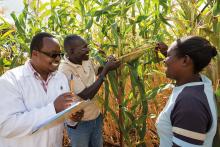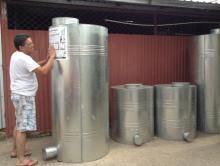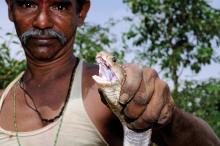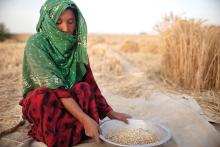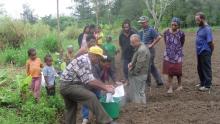Land Library
Welcome to the Land Portal Library. Explore our vast collection of open-access resources (over 74,000) including reports, journal articles, research papers, peer-reviewed publications, legal documents, videos and much more.
/ library resources
Showing items 1 through 9 of 27.In a long-term project in Kenya, the Swiss-based Research Institute of Organic Agriculture has examined the potential of organic and conventional agriculture regarding soil fertility, the occurrence of pests and diseases, and profitability.
Land is a critical resource. It is finite and irreplaceable. The role and efficiency of land use planning is therefore of considerable national importance. The issues faced by Rwanda in relation to land and land use planning are well recorded.
Like in other areas of livestock keeping, the growing demand for fish raises the question of how the feeding of animals can be maintained without competing with the provision of food for humans.
An ingenious combination of plant breeding, contract farming and processing has enabled smallholder tomato growers to tap new markets in Tanzania’s Arusha Region. Two improved tomato cultivars released from AVRDC lines are at the centre of this success story.
The Land Use Consolidation Act (LUC) was introduced in 2008 and is an important
component of agricultural policy in Rwanda. As part of the Government of Rwanda’s
broader Crop Intensification Program (CIP), LUC entails participating farmers
Livestock are kept for a wide range of purposes in Africa, and there is considerable diversity in animal husbandry. Among the most important advantages in keeping animals is their contribution to maintaining and even improving soil fertility.
Integrated Watershed Management represents an option for the management of water catchment areas. However, what may sound good in theory often proves to be very difficult when it comes to practical implementation, as an example from the Lower Mekong Region shows.
The aim of this policy brief is to describe current and historical conflicts over rights to land and natural resources within and surrounding protected areas in Rwanda.
Farmer organisations that deal with policy and advocacy need a lot of specific skills. Exchange programmes with their counterparts in the North can help local farmer organisation in the Souht tap their potential.

